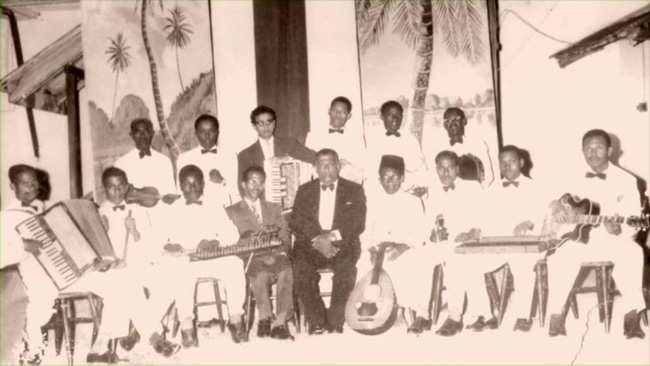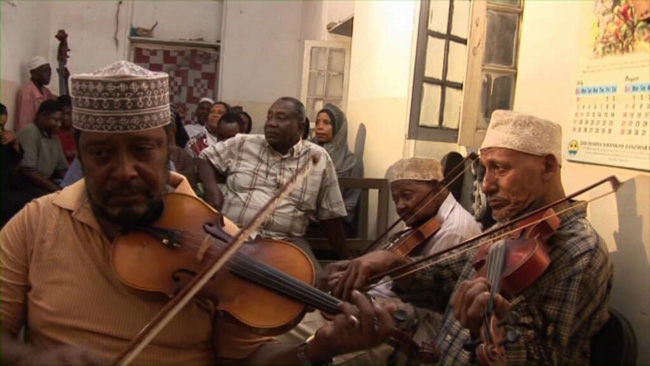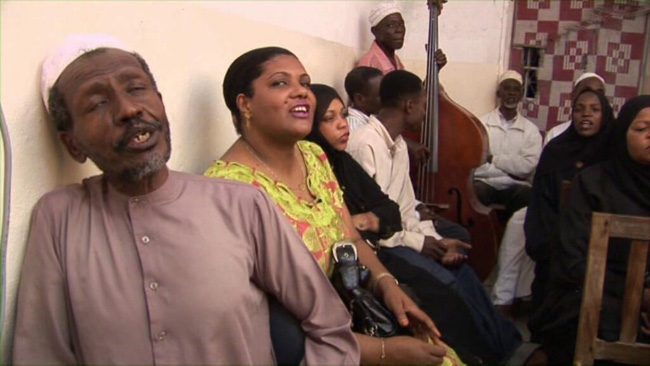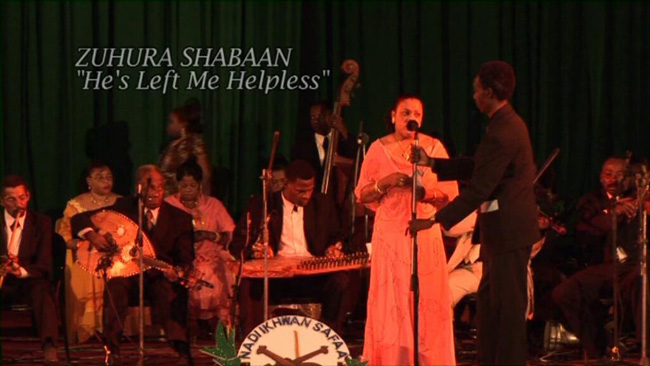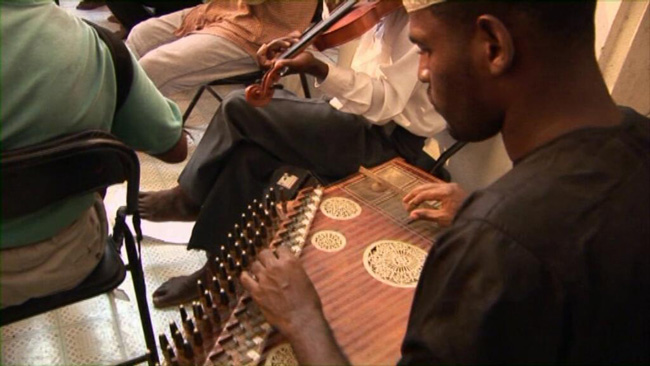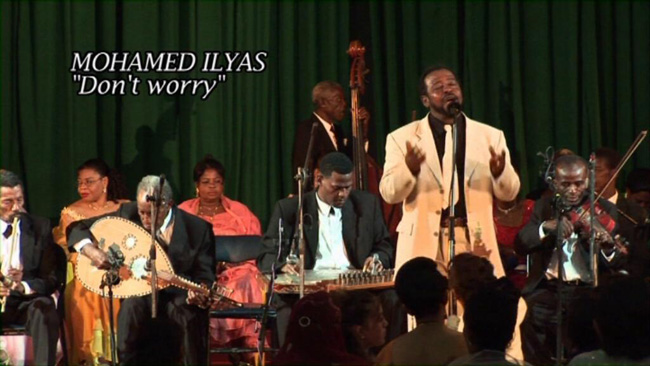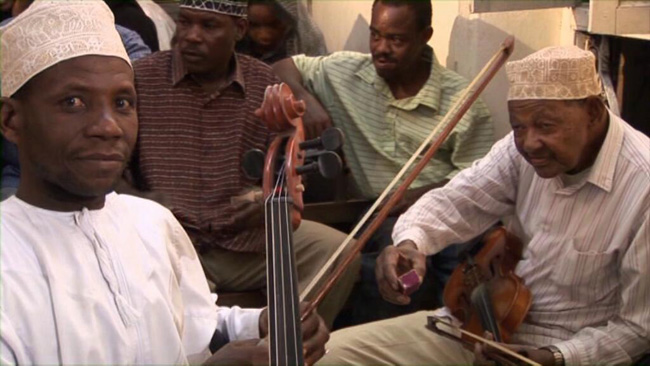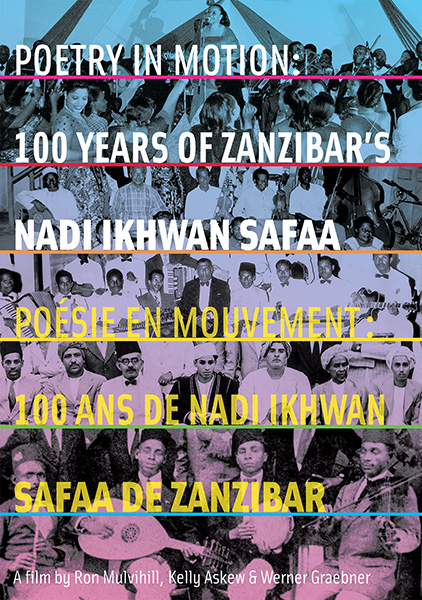Poetry in Motion – 100 Years of Zanzibar’s Nadi Ikhwan Safaa
For more than four thousand years, sailing vessels known as “dhows” have ferried goods across the Indian Ocean. One of their primary destinations has been, and continues to be, the island of Zanzibar. Situated at the nexus of African and Indian Ocean trade, Zanzibar developed into a thriving cosmopolitan and international trading center. It experienced tremendous growth in the 19th century when the ruler of Oman, Sultan Said bin Sultan, shifted his capital from Muscat to Zanzibar, where he could better control the dhow trade in ivory, slaves and spices on which his power depended.
One of the oldest institutions in Zanzibar today is the musical club Nadi Ikwan Safaa, whose name means “The True Brotherhood Club.” Established in 1905, it celebrated its 100th anniversary in 2005, distinguishing it as one of the oldest orchestras in the world today. Nadi Ikhwan Safaa performs a genre of Swahili poetry sung to instrumental accompaniment known as taarab. Taarab traces its roots to musical and poetic traditions of Africa, Arabia, and South Asia. Small taarab ensembles featuring just a lute, occasionally violin and small percussion were typical for the late 19th and early 20th century. The legendary Siti binti Saad performed with such a small ensemble. Then, inspired by Egyptian film orchestras of the 1940s and 1950s, Swahili taarab developed into an orchestral performance sound unique in its expression and far-reaching in its popularity. Highly popular in women’s wedding celebrations, taarab enables elites and commoners alike to express personal sentiments, articulate social grievances, and reinforce moral values.
The Zanzibar Revolution of January 1964 deposed the sultanate and led to the political merger of Zanzibar with Tanganyika to form today’s United Republic of Tanzania. Following the revolution, the government required all social organizations to be subsumed within the party structure and adopt the name of its nearest party branch. For Nadi Ikhwan Safaa, that meant the Malindi branch. Thus to many, it is known as “Malindi” or by the Swahili translation of its name: “Ndugu Wanaopendana.”
Through colonialism, revolution and widespread social change, Nadi Ikhwan Safaa continues to celebrate their joys and sorrows of life through their Poetry in Motion.
›› Director: Ron Mulvihill Produced by: Kelly Askew & Werner Graebner in association with Jahazi Media & Gris-Gris Films 2016.
DVD available from Buda Musique
[Art Matters]
[Jane Bryce, African Studies Review 2015]


